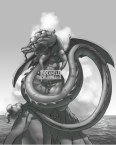By James L Hill (aka J. L. Hill)
I didn’t think I’d live this long, so I had my mid-life crisis early – in my mid-teens. I questioned the choices I made, the people I called friends, even the reason for my existence. I had a full blown meltdown at the age of sixteen. If I had known I would survive my twenties, thirties, and forties, I might have waited until now for a bout of WTF.
Here is something you may have figured out about me, I am a planner. Not a real good one, I often go off script, but I do consider my options before going through with whatever stupid idea that pops into my head. And regardless if the plan works out for the better, or the worst, I have no regrets.
Writers have mid-book crisis. If you are a writing a book, you will undoubtedly come to a point when you ask yourself, “What The Fuck was I thinking?”
Maybe some character has hijacked your story and taken your hero out of it. If you are a non-fiction person, maybe some minor fact had sidetracked you so far from your theme; it seems you are writing about a completely different subject. It happens. These are easy to fix, a couple of deletes, smack a few of your people around, and you are back on track.
What is really terrifying is finding yourself in the middle of the book fifty, sixty, seventy thousand words deep and not knowing why. You are looking at your book and it is just getting bigger and bigger. Your story is growing exponentially. The more you write, the more it grows, the further away the end seems. The full blown meltdown has begun. You question why you started this project. You question your characters ability to get their shit together. You even question if you are really a writer.
Ok, take a deep breath, or a stiff drink if that helps, it does for me. You’re OK. You are just looking at this thing the wrong way. Instead of looking at this thing as writing a book, think of it as finishing the chapter. You finish one chapter, celebrate, and then start the next one.
Make sure your people do what they are supposed to do in their chapter and move on. Let each chapter tell its part of the story fully and satisfactorily. Writing your book one chapter at a time removes the chance for regret. The chapter is over and you can move on with a clear mind. You’ll get the same sense of accomplishment whether you just finished chapter one or twenty-one. And when you are all done with your chapters you will have a completed book.
I didn’t think I’d live this long, so I had my mid-life crisis early – in my mid-teens. I questioned the choices I made, the people I called friends, even the reason for my existence. I had a full blown meltdown at the age of sixteen. If I had known I would survive my twenties, thirties, and forties, I might have waited until now for a bout of WTF.
Here is something you may have figured out about me, I am a planner. Not a real good one, I often go off script, but I do consider my options before going through with whatever stupid idea that pops into my head. And regardless if the plan works out for the better, or the worst, I have no regrets.
Writers have mid-book crisis. If you are a writing a book, you will undoubtedly come to a point when you ask yourself, “What The Fuck was I thinking?”
Maybe some character has hijacked your story and taken your hero out of it. If you are a non-fiction person, maybe some minor fact had sidetracked you so far from your theme; it seems you are writing about a completely different subject. It happens. These are easy to fix, a couple of deletes, smack a few of your people around, and you are back on track.
What is really terrifying is finding yourself in the middle of the book fifty, sixty, seventy thousand words deep and not knowing why. You are looking at your book and it is just getting bigger and bigger. Your story is growing exponentially. The more you write, the more it grows, the further away the end seems. The full blown meltdown has begun. You question why you started this project. You question your characters ability to get their shit together. You even question if you are really a writer.
Ok, take a deep breath, or a stiff drink if that helps, it does for me. You’re OK. You are just looking at this thing the wrong way. Instead of looking at this thing as writing a book, think of it as finishing the chapter. You finish one chapter, celebrate, and then start the next one.
Make sure your people do what they are supposed to do in their chapter and move on. Let each chapter tell its part of the story fully and satisfactorily. Writing your book one chapter at a time removes the chance for regret. The chapter is over and you can move on with a clear mind. You’ll get the same sense of accomplishment whether you just finished chapter one or twenty-one. And when you are all done with your chapters you will have a completed book.

 RSS Feed
RSS Feed
